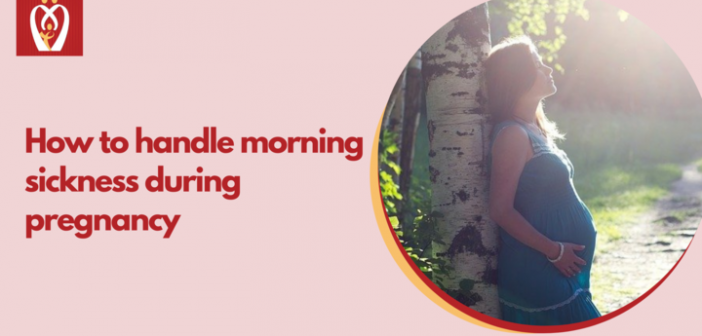Observing your signs and symptoms is the most common way to identify morning sickness during pregnancy. To rule out hyperemesis gravidarum, your GP may order a clinical evaluation and a variety of urine and blood samples.
Treatment
Morning sickness during pregnancy symptoms may be alleviated by your GP prescribing vitamin B-6 (pyridoxine), ginger, and over-the-counter medications like doxylamine (Unisom). Prescription anti-nausea drugs may be prescribed if you continue to have symptoms.
Pregnancy-induced dehydration and electrolyte imbalance may occur when a woman has moderate to severe nausea and vomiting. For mild to severe morning sickness, more fluids and prescription drugs are necessary.
Depending on the severity of your symptoms, your GP will ask about how often you have nausea, how frequently you vomit, and whether or not you are able to keep down fluids. Prescription drugs for nausea and vomiting may be used safely throughout pregnancy. Based on the severity of your symptoms, your GP will offer a safe treatment choice.
For prenatal care, talk to your GP before taking any OTC meds or supplements.
You may require intravenous (IV) fluids and anti-nausea drugs in the hospital if you develop hyperemesis gravidarum.
Lifestyle and home remedies
Morning sickness may be alleviated with the following:
- Make wise eating choices. Avoid rich, hot, and oily meals that are difficult to digest and heavy in protein. Bananas, rice, applesauce, and bread are all examples of foods that are simple to digest. Ginger lollipops and other ginger-flavoured snacks, such as salty pretzels, may be soothing at times.
- Snacks are an important part of a healthy diet. Eat a couple of soda crackers or a slice of dry toast before getting out of bed in the morning. Rather than eating three substantial meals a day, snack throughout the day to avoid overfilling your stomach. Additionally, nausea might be exacerbated if you haven’t eaten anything beforehand.
- Drink a lot of water. Water or ginger ale may be consumed. Drink six to eight cups of non-caffeinated fluids every day, preferably water.
- Pay attention to what causes you to feel nauseous. Stay away from foods and odours that make you feel worse.
- Get some fresh air. If the weather permits, open the windows at your house or business. Take a stroll outside every day.
- Prenatal vitamins should be handled with caution. If taking prenatal vitamins makes you sick, try taking them with a snack or just before bed. Ask your GP about alternate methods to receive the iron and vitamins you need during pregnancy if these measures don’t work.
- After vomiting, rinse your mouth with water. The enamel of your teeth may be eroded by the acid in your stomach. If you can, use a cup of water and a teaspoon of baking soda to rinse your mouth. As a result, your teeth will be better protected against acid erosion and the resulting decay.
Alternative treatments
Morning sickness may be alleviated using a variety of methods, including:
- Acupressure. Most pharmacies have acupressure bracelets that don’t require a prescription. However, some women seem to benefit from the use of acupressure bracelets.
- Acupuncture. A professional acupuncturist inserts hair-thin needles into the skin of the patient. Some women report relief from morning sickness during pregnancy after undergoing acupuncture treatment, despite the fact that this treatment has not been scientifically established.
- Ginger. Some women report relief from morning sickness during pregnancy after using herbal ginger pills. Many researchers consider it is okay to consume a small amount of ginger, but many others advise avoiding ginger because of the potential for it to interfere with foetal sex hormones.
- Hypnosis. Hypnosis has helped some women with morning sickness, despite the lack of studies.
- Aromatherapy. Aromatherapy, the use of essential oils to generate a smell, has been shown to alleviate morning sickness during pregnancy in some women, despite a lack of studies.
Consult your GP
Talking to your GP about the symptoms of morning sickness may typically wait until your next prenatal visit.
As a pre-meeting checklist:
- Keep a journal and jot down any symptoms you’re having. Be sure to include any and all symptoms you have, even if you don’t believe they are linked.
- Do you use any drugs, vitamins, or other dietary supplements? Make a note of everything you’re taking. Make a list of the dosages and frequency of use.
- If possible, bring along a family member or close friend. Remembering a lot of information might be tough.
- Make sure you have a notebook or a notepad with you. You may use it to jot down essential details while you’re there.
- Make a list of the questions you want to ask. Make a list of all the questions you have, with the most essential ones at the top.
